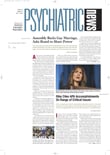Testifying before a joint House-Senate Intelligence Committee in September 2002, Cofer Black, who directed the Central Intelligence Agency's Counterterrorist Center on September 11, 2001, praised his staff for“ working 14- to 18-hour days, seven days a week, month after month.”
Bryan Vila, Ph.D., chief of Crime Control and Prevention Research at the National Institute of Justice in Washington, D.C., groaned as he read Black's assertion aloud at a public policy forum sponsored by the National Sleep Foundation (NSF) in the nation's capital in March.
“It's hard to think of an activity more likely to be impaired by lack of sleep than intelligence analysis,” Vila said. “Yet dedicated people with the best of intentions often work while sleep deprived.”
Vila and representatives of several other federal agencies discussed fatigue's impact on job performance and health at the forum, one of several NSF events marking National Sleep Awareness Week. The forum is held each spring just before the change to Daylight Saving Time, when Americans collectively sacrifice an hour's sleep.
Many police agencies have too few staff members to meet 24/7 demands, said Vila, author of Tired Cops: The Importance of Managing Police Fatigue (Washington, D.C.: Police Executive Research Forum, 2000). They use overtime to fill gaps, commonly double shifts of 16 hours straight, and sometimes even 24-hour triple shifts.
“Such long work hours increase the probability of accidents and on-the-job injuries, as well as poor decisions,” Vila said, “some of which may have horrible consequences.”
In the wake of 9/11, 200 New York Port Authority officers at least doubled their salaries with overtime, he said; one worked 360 days in 2002, earning four times his base salary. Nineteen Boston police officers earned more than $200,000 in 2004 by working overtime. In Boston, police officers are allowed to work up to 96 hours a week.
Scientists in the Sleep and Circadian Research Laboratories at Harvard Medical School will test the effectiveness of comprehensive fatigue-management strategies in 1,000 Boston-area police officers in a one-year intervention scheduled to start later this year, Vila said. The researchers will provide sleep education, schedules designed to foster sleep, and screening and treatment for sleep disorders. They also will assess the program's impact on job performance and off-duty life.
The accident at Three Mile Island (TMI) in Pennsylvania in 1979, the nation's worst civilian nuclear accident, focused attention on human factors issues in the design and operation of nuclear power plants, said David Desaulniers, Ph.D. He is a senior human factors analyst in the Nuclear Regulatory Commission (NRC) Office of Nuclear Reactor Regulation.
The meltdown of TMI's reactor began between 4 a.m. and 6 a.m., at the nadir of alertness in the human circadian cycle, and involved workers who had just rotated from day shift to night shift. Some sleep specialists have blamed TMI on worker fatigue and poor schedules.
The workers' difficulty in diagnosing the condition of the plant and taking appropriate actions to mitigate problems was consistent with decision-making difficulties observed with fatigue, Desaulniers said. NRC concluded, however, he said, that the primary contributors to the accident were problems with information presentation in the control room and with training. While NRC addressed these matters through subsequent regulatory actions, he added, it left power-plant licensees flexibility in scheduling.
Work conditions common today at the nation's 103 nuclear reactors, Desaulniers said, include 24/7 operations, 12-hour work shifts on schedules that can include five or more consecutive workdays, particularly when plant outages occur, and extensive use of overtime associated with heightened security following the 9/11 terrorist attacks.
NRC is reviewing proposed work-hour controls that limit individuals to 72 hours work in any seven-day period, and groups of workers to 48 hours per person per week, averaged over 13 weeks, he noted. Following NRC approval, the proposed rule will be published in the Federal Register for a 120-day public comment period.
Most transportation workers, such as truckers, bus drivers, and locomotive engineers, work on shifts longer than eight hours. Most also perform jobs with significant mental and physical stress, said Stephen Popkin, Ph.D., who directs the fatigue monitoring and countermeasures research team at the John A. Volpe National Transportation Systems Center in Cambridge, Mass. The Volpe Center is a fee-for-service organization within the Department of Transportation (DOT) that aims to foster technological innovation.
Transportation work often involves varying high and low workloads, night work, and irregular work and rest patterns, Popkin said. Noise, vibration, and temperature, along with age, health, and use of medications, alcohol, or drugs also affect workers' levels of fatigue.
DOT launched its operator fatigue management program in 1999, a partnership among government, industry, and labor to create tools to address fatigue-related safety concerns. Its products so far include a compendium of research on the utility of various fatigue countermeasures and software to help managers and schedulers assess how work schedules may affect on-duty alertness.
People with expertise in devising and managing ergonomic work schedules are in short supply, said Popkin, who is working to develop a curriculum and credentials for such professionals. ▪

